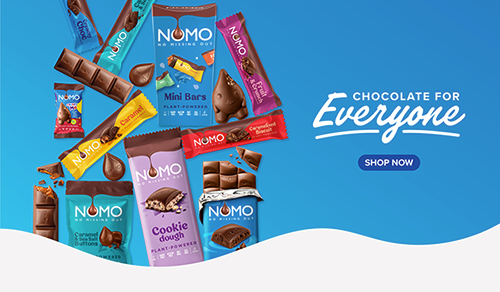Dairy Free vs Lactose-Free: Learn about the crucial distinctions and choose the right path to a healthier lifestyle.
Our dietary world is ever-changing, with increasing levels of intolerance and alternative dietary choices being made in the pursuit of healthier lifestyles.
Understanding the difference between “Dairy-Free” and “Lactose-Free” is more important than ever.
Whether you’re exploring these options due to lactose intolerance, dairy allergies, or simply aiming for a plant-based lifestyle, it’s essential to understand the differences.
In this article, we’ll discuss the intricacies of “Dairy Free” and “Lactose Free” explaining the differences, benefits, and considerations of each to equip you with the knowledge needed to adapt your dietary preferences to your health and lifestyle goals.
Is Dairy-Free the Same as Lactose-Free?
Dairy Free” and “Lactose Free” have become prominent labels, often used interchangeably but carrying distinct meanings.
Although there are obvious similarities and one could say they overlap each other in some aspects, there are however some distinct differences. So what’s the difference between lactose or dairy-free?
Lactose-Free:
Lactose is a sugar found in milk and dairy products. Lactose-free products are those that have had the lactose removed or broken down, making them suitable for people who are lactose intolerant, which means they have difficulty digesting lactose. However Lactose-free products remain dairy products, simply without the Lactose element.
Dairy-Free:
Dairy-free products, on the other hand, do not contain any milk or milk-derived ingredients. This includes both lactose and all other components of milk, such as proteins like casein and whey. Dairy-free products are suitable for people who are lactose intolerant as well as those who have dairy allergies or follow a vegan diet.
Dairy Free vs. Lactose Free: Comparing the Differences
Let’s break it down in more detail.
When it comes to dietary restrictions and choices, understanding the subtle differences between “dairy-free” and “lactose-free” can make a significant difference in maintaining a healthy and enjoyable lifestyle.
Here are the key differences between dairy-free and lactose-free diets:
Primary Focus:
- Dairy-Free: A dairy-free diet excludes all dairy products, which means no milk, cheese, yoghurt, or butter from animal sources.
- Lactose-Free: A lactose-free diet focuses on avoiding foods that contain lactose, a specific sugar found in dairy products.
Scope of Restriction:
- Dairy-Free: This diet extends beyond lactose-containing products to encompass all forms of dairy, including those that are lactose-free but still derived from animals.
- Lactose-Free: Primarily targets lactose-containing foods and allows for the consumption of dairy products that have been specially treated to remove or break down lactose.
Allergenic Potential:
- Dairy-Free: It is suitable for individuals with dairy allergies, as it eliminates all dairy proteins.
- Lactose-Free: Ideal for those with lactose intolerance, as it only excludes lactose while permitting dairy proteins.
Allowed Foods:
- Dairy-Free: Plant-based milk alternatives (e.g. coconut milk, almond milk, soy milk), vegan cheeses, and dairy-free spreads are commonly consumed.
- Lactose-Free: Lactose-free dairy products such as lactose-free milk, yoghurt, and cheese can be part of the diet.
Nutritional Considerations:
- Dairy-Free: Individuals need to ensure they obtain essential nutrients like calcium, vitamin D, and protein from non-dairy sources.
- Lactose-Free: While lactose-free dairy products can provide some nutrients found in dairy, people still need to address potential dairy allergies and nutritional gaps.
Suitability for Vegans:
- Dairy-Free: Often aligns with vegan diets, making it suitable for individuals who avoid all animal-derived products.
- Lactose-Free: Contains animal-derived products, so it is not inherently compatible with veganism.
Common Health Conditions:
- Dairy-Free: Beneficial for those with dairy allergies or lactose intolerance and may also be chosen for ethical, environmental, or lifestyle reasons.
- Lactose-Free: Primarily chosen by individuals with lactose intolerance, a common digestive disorder.
Understanding these distinct differences is essential for making informed dietary choices and accommodating various health conditions and preferences.
 Choosing the Right Path: Dairy-Free or Lactose-Free?
Choosing the Right Path: Dairy-Free or Lactose-Free?
When it comes to dietary choices, understanding the differences between dairy-free and lactose-free diets enables people to make informed decisions that align with their health goals, and lifestyle preferences which suit their unique needs.
As we delve deeper into the specifics of these dietary approaches, you’ll gain clarity on which one might be the right fit for you.
Whether it’s managing lactose intolerance, embracing plant-based living, or exploring alternative dietary paths, the journey to a healthier and more satisfying lifestyle begins with knowledge and choice.
In the next sections, we’ll explore their benefits, limitations, and common misconceptions of each.
Dairy-Free Diet: Navigating a World Without Dairy
Health Benefits:
A dairy-free diet offers several potential health benefits. It can lead to better digestion, reduced bloating and gas, improved skin complexion, and increased energy levels.
For individuals with dairy allergies, avoiding dairy products is crucial to prevent allergic reactions that can range from mild discomfort to severe symptoms.
Limitations:
Dairy-free diets can be challenging to maintain because dairy products are pervasive in many cuisines.
Calcium and vitamin D intake may be reduced, so it’s important to find suitable alternatives. Some dairy-free products may be highly processed and lack essential nutrients, so careful label reading is necessary.
Common Misconceptions:
One common misconception is that a dairy-free diet lacks calcium. In reality, you can obtain calcium from various non-dairy sources such as fortified plant-based milk, leafy greens, and tofu. Another myth is that dairy-free means taste-free, which isn’t true. There are delicious dairy-free alternatives available, making it easy to enjoy your favorite foods.
Now, let’s explore lactose-free:
Lactose-Free Diet: Enjoying Dairy with Caution
Health Benefits:
A lactose-free diet is essential for individuals with lactose intolerance. It alleviates digestive discomfort, including bloating, diarrhea, and abdominal pain.
By avoiding lactose-containing foods, you can enjoy meals without fearing unpleasant symptoms.
Limitations:
While lactose-free diets resolve lactose intolerance symptoms, they still involve some dietary restrictions. You must carefully check food labels to identify lactose-containing ingredients.
Additionally, lactose-free dairy products may be pricier than regular options.
Common Misconceptions:
One common misconception is that lactose-free products are entirely dairy-free. Lactose-free products are still derived from dairy, but the lactose has been removed or broken down, making them suitable for lactose-intolerant individuals.
Some may think lactose intolerance is the same as a dairy allergy, but they are distinct conditions with different symptoms and triggers.
These sections provide a detailed comparison of dairy-free and lactose-free diets, highlighting their unique characteristics, benefits, and considerations.
Practical Tips for Dairy-Free and Lactose-Free Living
Disclosure: This post contains affiliate links, which means that we may receive a commission if you make a purchase using these links. As an Amazon Associate, we earn from qualifying purchases.
Dairy-Free Lifestyle:
- Choosing Dairy Alternatives: Consider using various dairy-free alternatives like almond milk, coconut yoghurt, and cashew cheese, all with high nutritional benefits and versatility in cooking.
- Label Reading: It’s essential to thoroughly read food labels to identify dairy-derived ingredients, hidden sources of dairy, and allergen warnings.
- Eating Out: Whilst dining out at restaurants careful consideration needs to be given to menu items, perhaps also take a moment to communicate your dietary needs to waiting staff and chefs.
- Meal Planning: To aid you on a day-to-day basis, consider dairy-free meal planning, including easy swaps in recipes and how to ensure a balanced diet.
- Common Misconceptions: As detailed above there remain a few common misconceptions surrounding dairy-free lifestyles and with continued discussion, these misconceptions can be limited.
Lactose-Free Lifestyle:
- Choosing Lactose-Free Products: With our knowledge growing with respect to Lactose intolerance, the availability of lactose-free dairy products is ever-growing and more readily available benefitting those with lactose intolerance.
- Enzyme Supplements: Lactase enzyme supplements which are available at most health food shops can help digest lactose and the proper way to use them. Click the link to see a selection of Lactase Enzyme Supplements.
- Hidden Lactose: It’s essential to read all food and drink labels and become knowledgeable on potential hidden lactose in our daily food and beverages.
- Balanced Nutrition: It’s crucial to maintain a nutritionally balanced diet while avoiding lactose.
- Medical Advice: It’s always advisable to consult with your healthcare professional if you are diagnosed with lactose intolerance who will guide you on how you can manage this diagnosis in your daily life.
Navigating Dairy-Free and Lactose-Free Living
In the ever-changing world of dietary choices, understanding the distinctions between dairy-free and lactose-free diets is key to making informed decisions that align with your health goals. Click this link to see a wide selection of dairy-free products. Click this link to see a wide selection of Lactose free products.
 Whether you’re exploring dairy alternatives in a dairy-free lifestyle or managing lactose intolerance with precision in a lactose-free diet, remember that you’re not alone on this journey.
Whether you’re exploring dairy alternatives in a dairy-free lifestyle or managing lactose intolerance with precision in a lactose-free diet, remember that you’re not alone on this journey.
With an increasing awareness of dietary needs, the shops now offer a wide array of dairy-free and lactose-free options, making it easier than ever to enjoy a diverse range of foods without discomfort.
Embrace your food choices, try new recipes, and enjoy the diverse flavours of dairy-free and lactose-free living.
Your health and well-being are worth every bite.
We hope you have enjoyed our article on Dairy Free vs. Lactose-Free: What’s the Difference, and we very much hope this has provided you with insights into the differences between the two as well as providing you with valuable guidance on how you can incorporate either one of these into your diet, should that be your need or preference.
Please do drop us a comment below if you have any questions.
Stay connected for endless homemade ice cream inspiration! Join us for mouthwatering recipes, expert tips, and exclusive updates. Follow us on Pinterest, Instagram, Facebook, and X by clicking on any of the social media icons below.








































This was a very comprehensive article on the difference between dairy-free and lactose-free. I always thought that lactose-free products had no lactose at all but this is not always the case because lactose-free products can still have lactose but are broken down, making them suitable for people who are lactose intolerant. Nevertheless, dairy-free and lactose-free products both come with their advantages and disadvantages. As this article suggests, dietary choices must align with your health goals and lifestyle preferences.
Hey Hussein,
Thanks for your comment, and glad that you appreciated our article highlighting the differences between Dairy Free and Lactose-Free. Many people assume they are the same thing, but there are distinct differences and for those with Lactose intolerance it’s important that they use the correct versions.
Glad you found value in our article and thanks for dropping by.
All the best,
Cherie